Rabbits enjoy eating all types of veggies, and well-balanced nutrition is crucial for their overall wellbeing. We all know veggies are full of vitamins and minerals that are essential for our health. Broccoli is one of the cruciferous vegetables that are known for being a superfood, but can rabbits eat broccoli? And, if they can, how much is too much? What part of the broccoli is safe for rabbit pets to eat?
Our article will give you the answers to all these questions, and more.
Can Rabbits Eat Broccoli?
Yes, rabbits can eat broccoli, but that doesn’t mean that from now on you should be feeding your bunny broccoli on daily basis in big quantities.
Yes, broccoli is one of the most nutritious vegetables and rabbits can eat them, but for proper rabbit care, moderation and balanced nutrition are crucial for its health.

How Nutritious Are Broccoli?
Broccoli is one of the most nutritious and healthy veggies that are low in calories. Being one of the most delicious cruciferous veggies, broccoli is an important part of our diet. And, it can be part of your rabbit’s diet as well. If your bunny doesn’t enjoy eating broccoli, try including it in some other way because it is very nutrient-dense.
One cup of broccoli has only 55 calories, 11 grams of carbohydrates, 4 grams of protein, and 0.3 grams of fat, but it contains a lot of phosphorus, calcium, magnesium, potassium, and vitamins C, A, and K.
What Happens If a Rabbit Eats Broccoli?
Is broccoli safe for bunnies? And, what happens when your furry friend eats broccoli?
Broccoli provides a lot of nutritional benefits, and it is safe to give it to your rabbit in small quantities once in a while. Although broccoli can be very good for your bunny’s dental health, eating it can lead to gas especially if the rabbit eats a bit too much of it.
You may be used to giving the pet veggie scraps off your plate, but when it comes to broccoli you should do it with caution.
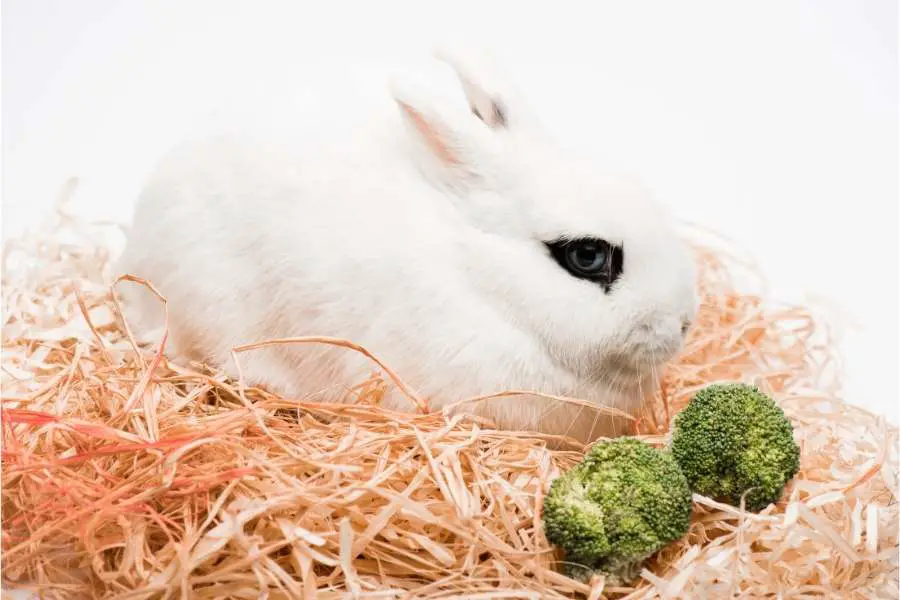
However, not all rabbits will handle eating broccoli the same. Some bunnies can digest broccoli easier than others, but if your furry companion has stomach issues be aware of how much and how often you feed it broccoli.
Can Rabbits Eat Broccoli Stems?
Broccoli stems are a little bit thicker, but they provide a lot of benefits for your bunny’s dental health. However, try giving your pet a few tiny pieces because there are some rabbit owners that have reported that stems can cause more gas and digestive issues.
Can Rabbits Eat Broccoli Florets?
You can feed your bunny broccoli florets, but still proceed with caution and monitor how your bunny’s tummy reacts to them. If you notice a bloated belly, gas, or diarrhea, stop giving your rabbit broccoli and consult with your veterinarian.
Can Rabbits Eat Broccoli Leaves?
Although broccoli leaves are not as thick as the broccoli stems, you should still feed them to your rabbit in moderation. They are full of vitamins C, A, fibers, and antioxidants, but don’t overfeed your bunny broccoli leaves.
If your rabbit experiences gas when you give it broccoli stems or florets, try with broccoli leaves. Its tummy may tolerate them better.
How to Feed Your Bunny Broccoli?
If you feel unsure about feeding broccoli to your furry friend, try giving it a small piece and see how it reacts. Notice how its belly processes it and if there are any signs of gas.
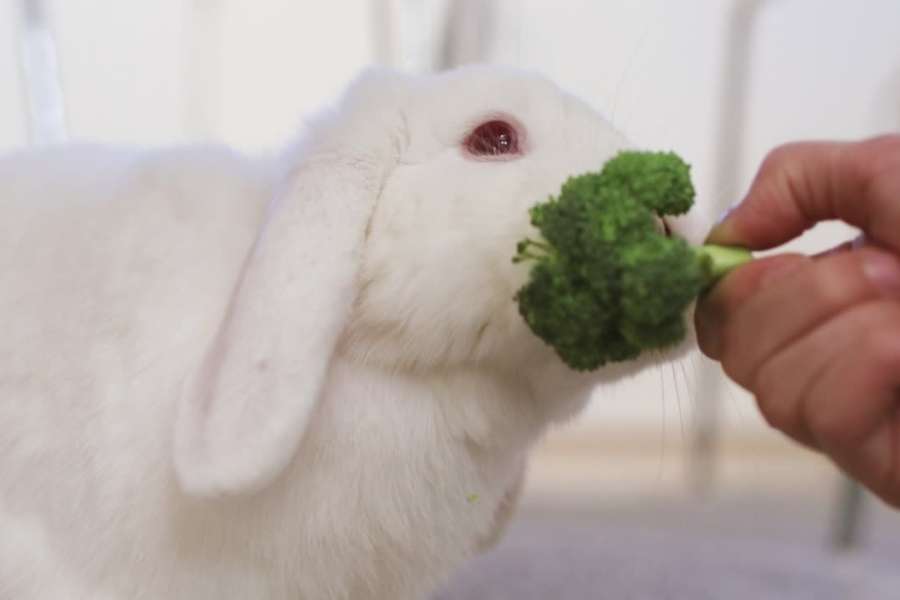
If you hear some kind of gurgling noise coming from your bunny’s belly, or you notice that it is feeling a bit lazy and lethargic, your rabbit may be having digestive issues.
A consultation with a vet is a must if you notice that your gassy bunny has been dealing with this problem for longer than a day.
How Much Broccoli Is Too Much?
Your rabbit pet may be experiencing digestive issues from a small quantity of broccoli. If this is the case, then broccoli shouldn’t be included in its balanced diet. There is a variety of veggies that can provide a lot of vitamins, minerals, and fiber without making your pet gassy.
Nevertheless, if you’re your bunny tolerates broccoli, enjoys eating broccoli, and doesn’t have any adverse reactions, you can feed it a few small pieces a couple of times per week. But, remember that broccoli is just an addition to your rabbit’s nutrition.
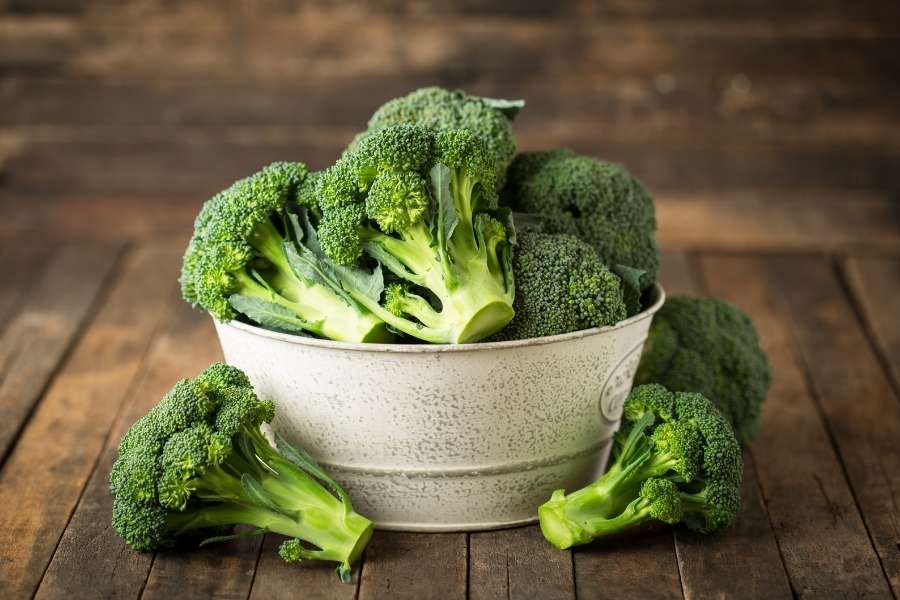
In addition, a bunny’s diet isn’t complete without a variety of veggies, good-quality hay, and rabbit pellets. A balanced diet that includes all of these is going the most beneficial for your bunny’s health.
What Is the Best Vegetable for Rabbits?
Vegetables are an excellent source of vitamins (A B, C, and K), fiber, and minerals (zinc, copper, manganese, iron, etc.). Since rabbits are herbivores, they can get a lot of nutritional value by supplementing their diet with veggies.
If broccoli isn’t your rabbit’s belly favorite veggie, there are a lot of others from which you can choose. Leafy greens that are safe for rabbits include arugula, parsley, bok choy, cilantro, kale, lettuce (romaine, red or green leaf), dill leaves, spinach, wheat grass, radicchio, watercress, mint, basil, dandelion greens, turnip greens, endive, mustard greens, and raspberry leaves. Other veggies that can be a great supplementation to your bunny’s diet are carrots with leaves, brussels sprouts, cabbage, celery with removed veins or cut into pieces, zucchini, parsnip, cucumber with leaves, and bell peppers with removed seeds.
It’s essential that you gradually introduce a new food into your furry friend’s diet to avoid upsetting its stomach. Furthermore, try to add one food item at a time, in small amounts, and when you gradually increase over time observe how your bunny reacts. If you notice there are any changes in its stool, appetite, or behavior, stop feeding it that food and consult with a veterinarian.
What Vegetables Are Toxic to Rabbits?
Fruits and veggies are nutritious and rich in vitamins and minerals. However, some veggies can be harmful and toxic to your bunny.
Mushroom, kidney beans, iceberg lettuce, potatoes, rhubarb, and broad beans can be quite poisonous to our furry friends. Light-colored lettuce like iceberg lettuce is full of water and doesn’t provide a lot of nutrients, and also it contains lactucarium which can harm your rabbit.
In relation, cauliflower and chard may cause bloating and colic, so avoid feeding your bunny these two veggies.
The safest way is to introduce new items gradually, and stick with vegetables and herbs that are high in fiber. Taking into consideration that rabbits have sensitive tummies, it is best to add new food in moderation and every once in a while.
What Should You Never Feed a Rabbit?
You may feel compelled to share food with your furry companion because you love it and you feel like it is part of your family. And that’s great, but you may be doing more harm than good without knowing. Certain human foods can be quite hazardous to rabbits and may lead to serious health concerns.
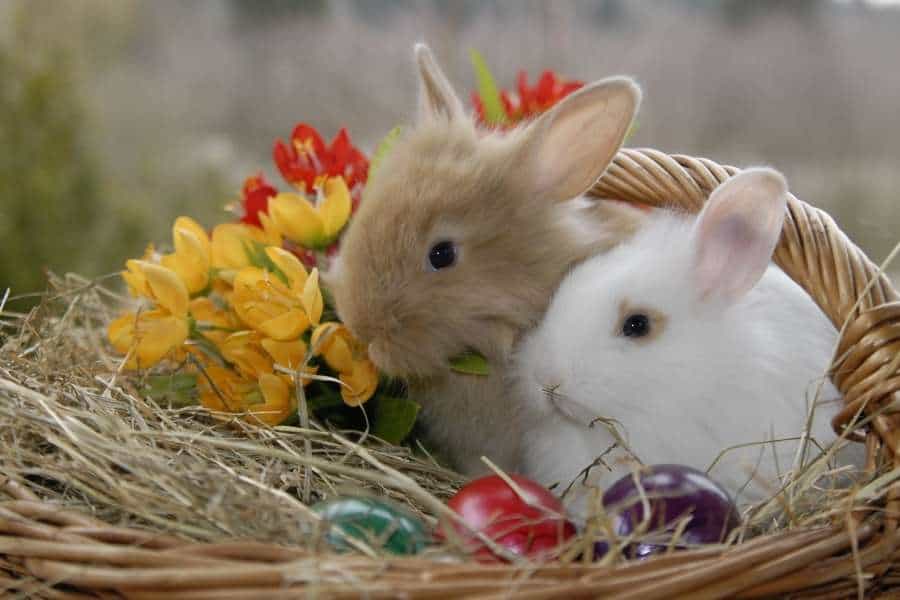
We mentioned above some vegetables that can be toxic and dangerous for bunnies to ingest. But, what other food should you never feed a rabbit?
Fruit Seeds, Pits, and Avocados
Avocados can be extremely toxic to rabbits due to the compound persin which is found in the leaves, skin, pit, and flesh. High levels of persin can lead to abnormal behavior, problems with breathing, and congestive heart failure.
Fruit seeds and pits have trace amounts of cyanide, and while the quantity that they contain isn’t much, it is safer to avoid giving them to your bunny.
Garlic, Onions, and Leeks
While these items are very beneficial to humans, the oxidant called n-propyl disulfide can cause anemia, weakness, and lethargy in rabbits because it attaches to the red blood cells.
Dairy, Eggs, and Meat
We already mentioned that rabbits are herbivores and their digestive system isn’t designed to properly digest protein from animal products. Their sensitive digestive tracts don’t handle dairy well, even though you may feel like there isn’t any harm in giving it a few drops of milk or yogurt it can disrupt the microbiome.
Processed Foods and Chocolate
Although processed foods are not so healthy for us humans as well, they can cause a lot of damage to rabbits. We may feel like sharing a snack or two with our best furry friend, but that cracker can lead to abdominal discomfort, and digestive issues and increase the risk of obesity. This doesn’t mean that both of you can’t enjoy a treat together, but try offering a few veggies or fruits.
In relation, it isn’t a surprise that chocolate is on this list as well. Chocolate has been proven toxic to many animals, and it is the same as well. And, although dark chocolate is healthier for us, it is more toxic to bunnies. If your bunny has ingested some chocolate, and it shows some diarrhea, hyperactivity, panting or elevated heart rate, take it to a veterinarian immediately.
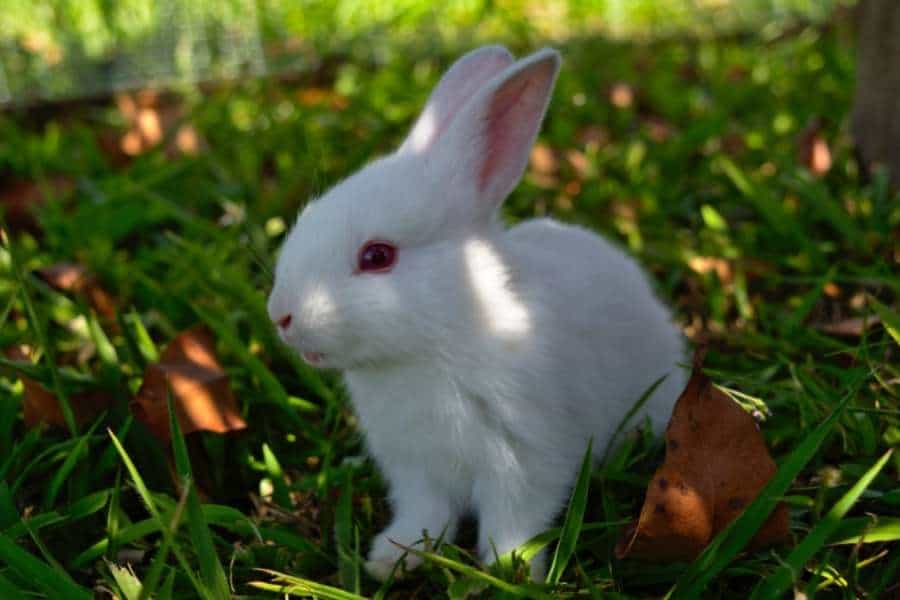
Summary
Broccoli can be an excellent supplement to your rabbit’s balanced diet. However, its nutrition should be filled with colorful vegetables, including root veggies, fruits, herbs, leafy greens, good-quality hay, and pellets.
Your rabbit’s optimal health depends on well-balanced nutrition that isn’t too high in calories because it can lead to obesity, which then can lead to other health issues related to joints and organs of the body.
A well-balanced diet and exercise are vital for a healthy and happy bunny.
